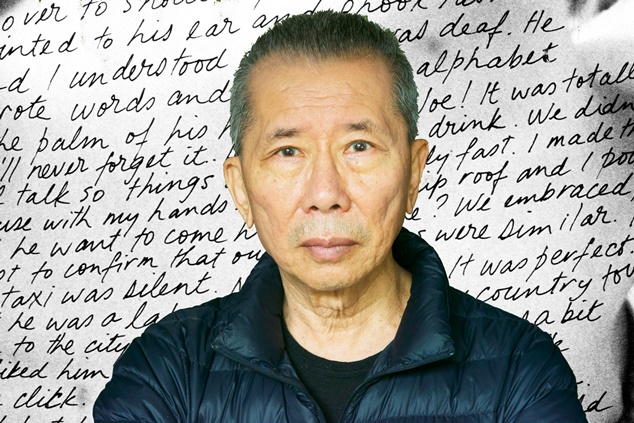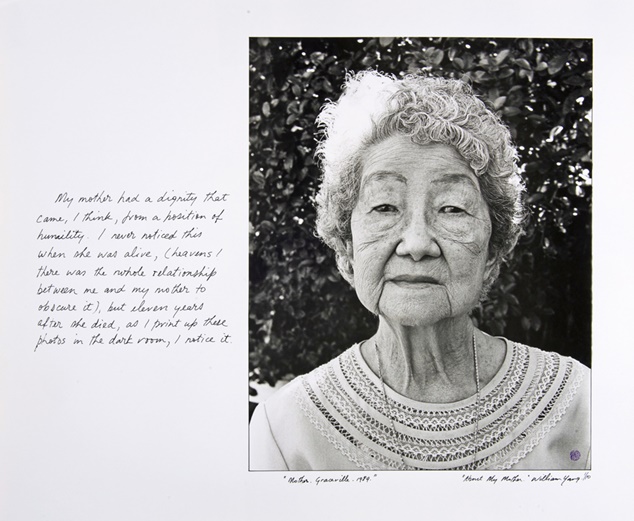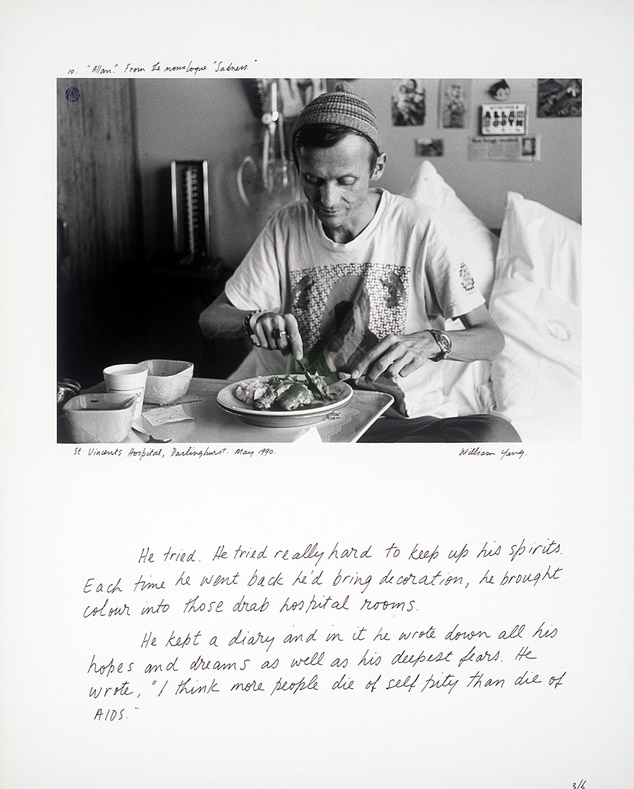
Chinese-Australian artist William Yang is a master storyteller. A photographer, filmmaker, performer and writer, Yang has documented and observed Australia’s LGBTI+ community from Sydney over decades.
Known for his intimate perspective and unique style, Yang will be heading to Perth as part of this year’s Perth Festival for a special discussion about his work, sexuality, family, identity and losing friends to AIDS-related illness.
Speaking to OUTinPerth, Yang explains how he approaches his work, his observations on the metamorphosis of Australia’s queer community, and “coming out as Chinese.”
“I just focus on my own life really. I’d rather make work out of that than do jobs for people. It revolves a bit around stories too. I do a lot of performance but I seldom do freelance work.”
Yang explains that being a multi-disciplinary artist has forced him to examine the way he creates his art, depending on the media and audience.
“Film is a much more rigorous medium than performance, because with performance you can be discursive. Because you’re there you’re kind of like a focus for the audience, but with film, especially small screen, you’re not there so you worry someone’s going to go to the kitchen or something… so there’s a lot more pressure on you to hold the viewer’s attention.”

Much of Yang’s work shines a spotlight on queer Australians, and has been observing fellow LGBTI+ people through his lens since the 1960s.
“Until Stonewall, the gay society in Australia was totally underground. I lived in Brisbane before 1969 and I wasn’t out so I never saw any of it. When I came to Sydney in 1969, I saw the tail end of that underground world.
“It was taken over by gay liberation in the 70s and people came out and a community was formed. It probably took a decade for the community to fully form and it was very commercial. In the ‘80s it was formed around bars, Oxford street and the pink dollar.
“It was also, of course, very political. When homosexual acts were illegal, all of the demonstrations were about decriminalising homosexuality, which didn’t happen until 1984 in Sydney – but by then there was already a vibrant community.
“The community became self-sustaining, commercially, with bars and places to come together. By then the Sydney Gay & Lesbian Mardi Gras had formed as well, because of the events in 1978. The Mardi Gras was always a political focus.
“The next biggest change would have been AIDS in the late 80s, a massive blow as people were getting sick and dying. Our enemies at the time saw it as a chance to wipe us off the earth, and so there was great negativity. A terrible time.
“Then, in the 90s, the community regrouped in Sydney and lesbians became more visible at Mardi Gras, forming a stronger coalition. The Mardi Gras grew massive, and it couldn’t sustain its own success. The ever-changing board couldn’t handle the size of the festival and it went broke and almost disappeared, but managed to resurrect itself in the noughties – but it has never been as big as it was in the 90s. It still has a lot of energy, a lot of youth… but it’s certainly lacklustre compared to what it was.

Now, Australia has said YES to marriage equality, and same-sex couples have begun to wed across the nation. Yang expects this year’s Gay & Lesbian Mardi Gras will reflect the gravity of the community’s victory.
“Marriage equality will change things. We’ve just won this huge battle, and there will be a massive celebration at this year’s 40th anniversary. I think that was one of the last battles to be won and I think it was won resoundingly. It destroyed the myth of the silent majority.
Besides his gay identity, Yang explains he had a second coming out later in life – reconciling himself with his Chinese identity.
Growing up in Australia with Chinese parents in the 1950s and 60s, Yang explains he was encouraged not to emphasise his differences from straight, white Australians.
“I was politicised by the gay movement. I’d been out as gay person for about 12 years when I realised I’d grown up as an assimilated Chinese-person. My ethnicity had been suppressed, in the same way my sexuality had been suppressed.
“It was partly the way my mother brought me up. She wanted me to be “more Australian than Australians”. It was just understood when I was growing up that people would speak English. Being different was not really tolerated.
“I “came out as Chinese” and started including identity in my work. As a gay person and as Australian-Chinese, marginalised themes appeared in my work.
“The piece I am doing for the Perth Writers Festival will be a talk about photographs which I’ve written on. Years before my work was split into categories, being gay or being Asian. So I tried to embrace a “bi-culturality”. I embraced being gay, being Australian, and I embraced being Chinese as well.
William Yang will be at Perth Writers Festival on Sunday February 25th at UWA’s Octagon Theatre. Tickets and more information available from perthfestival.com.au
Leigh Andrew Hill
Support OUTinPerth
Thanks for reading OUTinPerth. We can only create LGBTIQA+ focused media with your help.
If you can help support our work, please consider assisting us through a one-off contribution to our GoFundMe campaign, or a regular contribution through our Patreon appeal.





